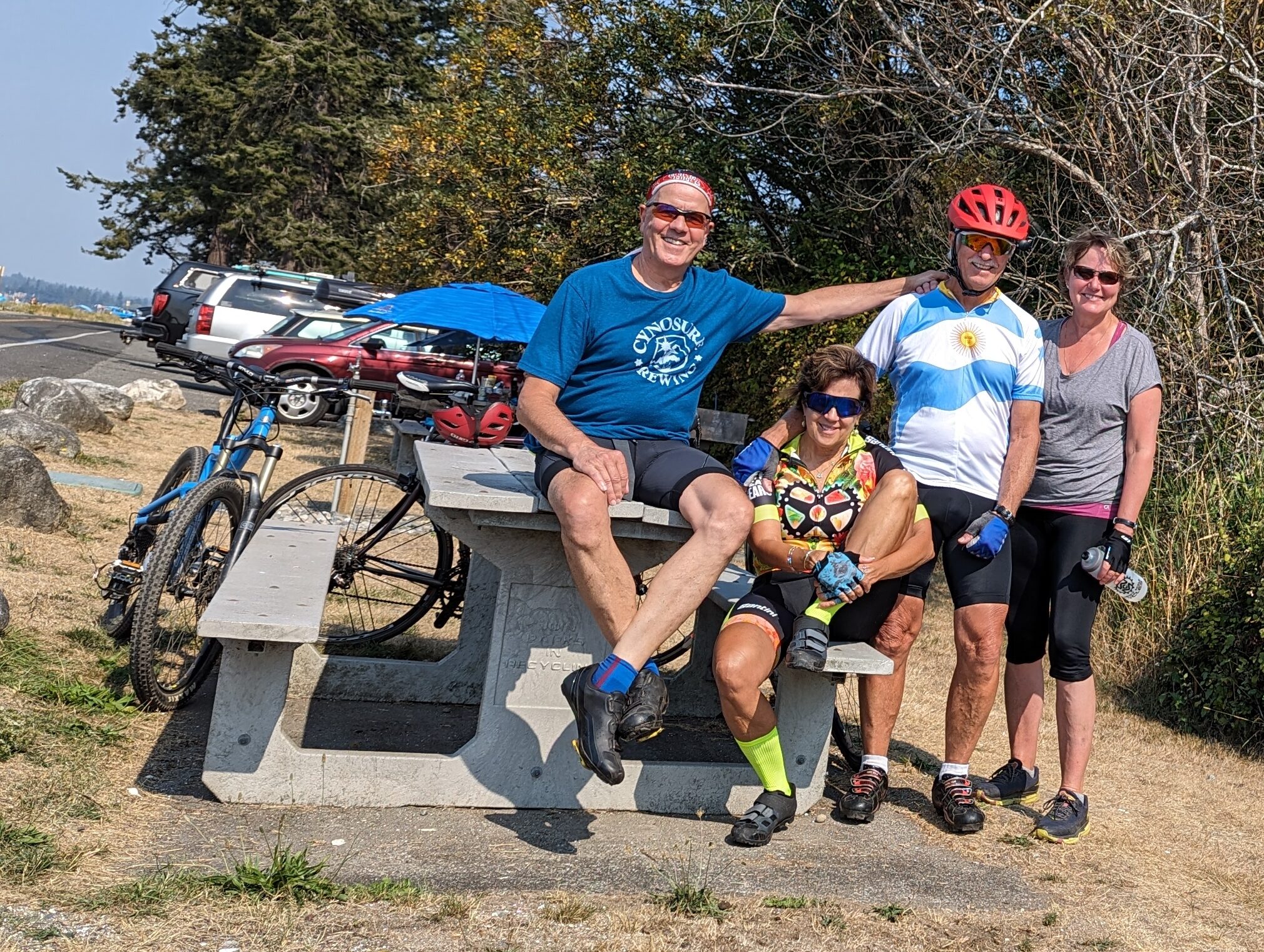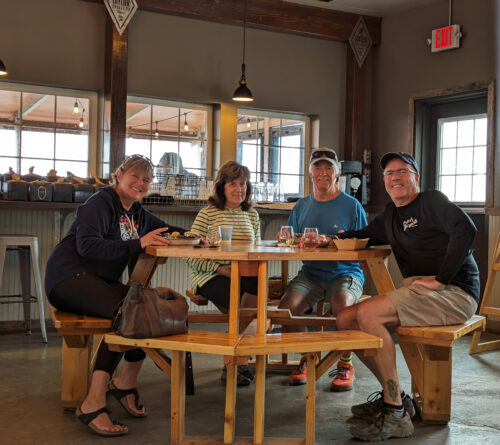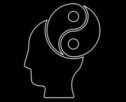No, we are not running an AirBnB. Although you might think we were for all the friends ‘n family who’ve come to visit us since we moved here (with more in the queue). The latest: our good friends from Colorado, Dave & Cindy

The last time we saw these two was on my 2014 bike tour in Alaska. Time has been good to both of them. Yesterday, we tootled down the beach road on our bikes, paused at a picnic bench for a photo-op, then hopped back on the bikes to pedal back to the homestead, stopping along the way for “refreshments.” Other than some haze from Canadian wildfire smoke the day could not have been more perfect. The next day, while we devoured multiple species of oysters, we discussed, without sneer or avarice, the plight of those who must continue to work for a living. For context: Dave, the most experienced among us, retired seventeen years ago, the same year HW and I were married 😲 Cindy worked many years in corporate for Big fast food, where she provided best-practice guidance on setting up new franchise stores, especially how to staff them. After that journey ended she worked part-time as a phlebotomist in a hospital, throughout the pandemic, where she experienced the best and worst of humanity. There were co-workers and patients who were grateful for her service, yes, but also the most odious expressions of mental health failure. For example, a furious patient contemptuous of Fauci, blurting between spasms of dry cough that COVID was a hoax intended to take away our freedums, right up to the point a ventilator was fastened around her pathetic head to prevent respiratory failure and death.
I rarely recap details of my professional work. Mostly because people are not interested in what I did day-to-day. And not just me. The vast majority of roles, regardless of where one works or what ones status was, as anyone who’s worked a typical 8-5 job will tell you, involve considerable mundanity. Not the stuff of a Ted talk if you know what I mean. Which is not to say that what one has experienced at the office, accomplishments and misfortune both, can’t be spun up into an enthralling story and delivered in such a way to hold an audience rapt for thirty minutes. But tell people the story of how oil and gas is found, not the mind-numbing detail of ancestral sea dynamics, or sound wave analysis. Or, OK, you’ve turned beds in hotel rooms for thirty years, snooze alert. Yet tell me a story of all the curious items you’ve collected, left behind by guests all those years, and I’m all ears. Want to know why Steve Jobs was such an interesting speaker? Google it. Of course, audiences may be enthralled by nonsense, too. But that says more about the gullibility of the audience than the quality of the storyteller.
While I do enjoy true stories, I love fiction, especially with a dash of satire and a sprinkle of hyperbole. Personal taste. Though it sets me to wonder: what is it exactly about a given story that keeps me enthralled? It can’t be prose style alone – there are many fine works in literature, beautifully written, where I’m like, meh. It can’t be merely connection with and empathy for the characters, or even the clever arc of the plot line (sometimes there isn’t one). I’m sure there are many examples in literature where one or the other of those features are evident in spades, yet the overall story does not compel me. So what is it? The obvious best guess is it’s all of those features rendered in just the right amount, and in just the right order, to create the perception in my brain that associates with the feeling of pleasure. No different, I suppose, than how the many features of any work of art come together to activate our pleasure center. For example, a painting – I feel soothed while staring at American Gothic. And this is a good place to propose that pleasure, broadly defined, is a driver of well being, and quite variable in its expression, ranging from the oxytocin-induced sexual arousal variety, down to the simple feeling of equanimity. And given that pleasure is experienced subjectively, it makes sense that some people will be enthralled by a given story, others will not. OK, so, literature is art –> art activates pleasure –> pleasure is good (I want more) –> I keep reading (stay enthralled). Hardly a stop-the-presses conclusion, I realize, yet it suggests a causal link between words on the page and neurobiology. Even so, the direction of cause and effect is likely fuzzy – do you like the story because reading it causes pleasure, or is a feeling of pleasure driving your conclusion the story is good 🤔 I can conceive of an experiment that might tease out the answer.
Anyway, all this set me to thinking about the discussion around generative AI (e.g. ChatGPT), its capacity for generating stories, especially what some people claim are good stories. While it is true that every good story (e.g. book) may be reduced to just words on a page, in a unique order, unless the author himself has also been “trained” on human experience (has grown up in the real world), his words, sentences, and paragraphs may not conjure in the reader’s mind an authentic human experience. And thus will not activate the reader’s pleasure center, even a little bit. In fact, the reader may feel duped. And there’s one thing every good writer wants to avoid: not telling the truth. Fiction isn’t a license to lie.
A grownup BI (biological intelligence) has real world experience, AI doesn’t. This is an important disadvantage when it comes to writing good stories for pleasure seekers.

